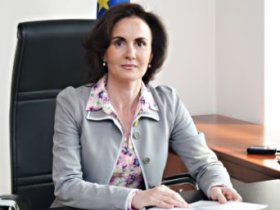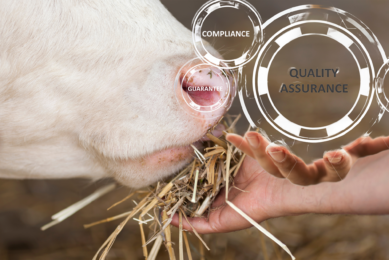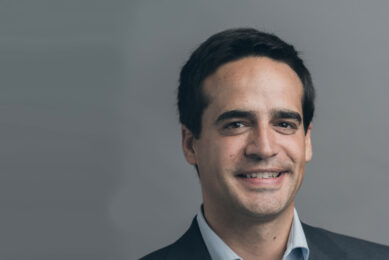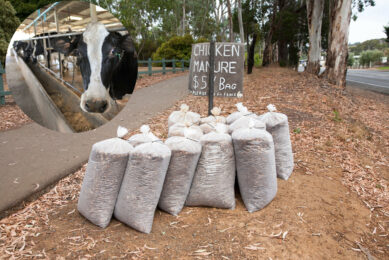EFSA director: ‘We are not there to please everybody’

Catherine Geslain-Lanéelle recently started her second five-year mandate as Executive Director of the European Food Safety Authority, better known as EFSA. AllAboutFeed talked to her in an exclusive interview.
Her main concern for the coming years is to maintain and improve the scientific expertise of EFSA in an environment of continuous pressure on feed and food safety budgets in member states.
Somewhat hidden away in Parma, Italy and outside the focal point of international journalists the European Feed Safety Authority, established in 2002, is the most important body for feed and food safety in the European Union.
Since 1 July 2006 Catherine Geslain-Lanéelle is appointed as Executive Director and this year she has been mandated for another five year period.
EFSA closely cooperates with national risk assessment bodies and as such Geslain-Lanéelle travels to the individual EU-member states to foster the cooperation between EFSA and national risks assessment bodies, laboratories and universitites.
Zoonoses, diseases that can migrate from animals to humans, are a focal point in EFSA’s assignment,. “Zoonoses represent an important issue in the food chain. We have contributed to a reduction in the food chain of for example salmonella outbreaks,” Geslain-Lanéelle says.
Annual 300,000 cases are reported in the EU. EFSA is pivotal in data collection on salmonella incidences, setting targets and monitoring progress, she explains.
The program is successful, latest known data show a reduction in salmonella cases from 2008 to 2009 in the EU of 17% and of -26% in The Netherlands as most successful.
Health claims
With the reduced antibiotic use in the EU many new products emerge to compensate for loss of performance, or to improve health of animals and humans.
“We received around 3,000 requests for a health claim on a product,” Geslain-Lanéelle says. “Eighty percent of these claims are rejected, mostly because of incomplete dossiers. The opinion on botanicals is not complete yet. Some 1,500 requests are put on hold.”
This group of ingredients is difficult to place. Sometimes there are inconsistencies between the health claim on the one side and medical use of the product on the other side.
Many studies are required to support a claim. What is the product? In probiotics for example, what is the actual microbial used? What are the benefits? What is the cause-effect relation?
“For 200 to 300 probiotics companies have to come back with better scientific backgrounds. With such a decision we then are seen as an obstacle for market access, but we are not there to please people and companies, we are there to do our job and make foods safer,” Geslain-Lanéelle parries criticism on the slow moving of EFSA.
Pay for processing
Around 40% of the EFSA budget of about €17 million is allocated to dossier applications. For the future the commission is considering a system of fees for submitting dossiers.
“This would free us to allocate money to other issues that the industry would not pay for,” Geslain-Lanéelle says.
Although she is not able to mention any amount Geslain-Lanéelle is not afraid that such a fee would withhold smaller operations to submit dossiers as it would become too costly for them.
“If you consider that the cost for EFSA for a risk assessment for a GMO is more than €300,000, such a fee would not be a burden not to submit a dossier. A fee could also contribute to the efficiency of dossier processing. A company will better prepare itself before submitting a file.”
Independence
Because of the close cooperation between EFSA and national bodies and institutes the organisation is sometimes criticised on its independence, even up into national parliaments.
Critics are that the organisation would rely too much on industry data, would require too much data and conflicts of interest might occur when using external expertise, where there is more and more private funding of research.
Geslain-Lanéelle deflects this criticism. “We have build-in safeguards to avoid external influences other than science. The advice we give is always a collective advice and not the opinion of one expert. We select experts using set criteria to avoid that an opinion is biased. Also the opinion of one expert is checked by more than 20 of its panellists.”
Last year in 300 occasions scientists were partially or totally excluded from assessing a particular product because of possible bias. This all was done to avoid bias, Geslain-Lanéelle explained.
“Annually we screen 5,000 declarations of interest. In four occasions experts resigned from a panel because they forgot to declare a possible conflict of interest.”
Just as allowing people from the industry in a panel is not a good idea the suggestion to include representatives of non-governmental organisations is not welcomed.
“With NGOs you don’t always understand what their real interest is, which is for example the case in the GMO debate,” Geslain-Lanéelle says. “Science is the basis for EFSA decisions and that may not always give an answer where everybody is happy with.” (Dick Ziggers)











